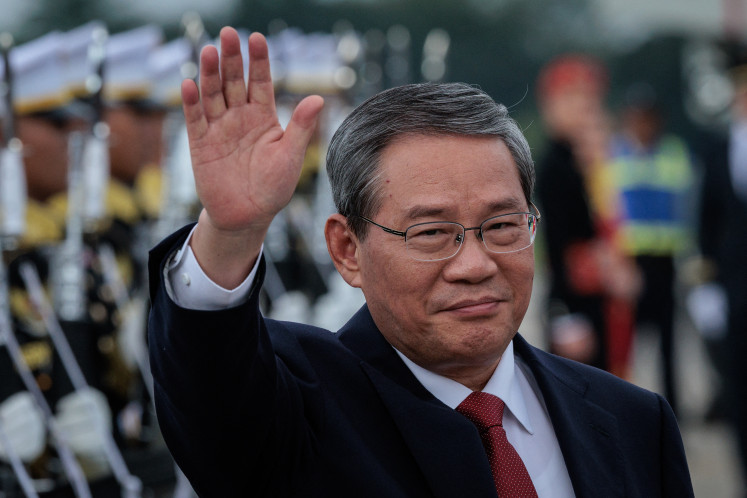PDI-P-Golkar could be 2014 game changers
The Golkar Party and the Indonesian Democratic Party of Struggle (PDI-P) have reportedly mulled the idea of forming an alliance for the 2014 presidential race; a move analysts say would be a game changer although it is highly unlikely to happen
Change text size
Gift Premium Articles
to Anyone

T
he Golkar Party and the Indonesian Democratic Party of Struggle (PDI-P) have reportedly mulled the idea of forming an alliance for the 2014 presidential race; a move analysts say would be a game changer although it is highly unlikely to happen.
Golkar is now the main ally of President Susilo Bambang Yudhoyono's Democratic Party, while the PDI-P is the latter's biggest opposition party. Moreover, Golkar and the PDI-P comprise the second- and third-largest factions, respectively, in the House of Representatives.
A number of surveys on the electability of political parties in the 2014 election put the two parties in the top three, thanks to the declining fortunes of the Democratic Party, currently the largest House faction, and the Prosperous Justice Party (PKS), which accounts for the fourth-largest faction at the House, due to major graft scandals implicating their respective members.
In the past few years, Golkar and the PDI-P often collaborated in the House to challenge Yudhoyono's policies, a spectacle that made them look more like allies than archrivals. This has led to suggestions that the two may form a powerful alliance in the upcoming election.
But analysts say the fact that various surveys have named them as front-runners in 2014 will prevent them from making such a move.
'We have seen that the electability ratings of both parties are very close. Naturally, it would be difficult for two parties with a similar degree of electoral power to form a coalition. A strong party usually accepts smaller parties in an alliance to maintain its control,' Arya Fernandes, a political analyst from Charta Politika, said on Sunday.
Both parties would also likely nominate their own presidential candidates. If they formed a coalition, one of the presidential nominees would have to be 'relegated' to be the vice-presidential candidate, a move that would be extremely unlikely, he said.
The latest survey by the National Survey Institute (LSN) predicted that Golkar could gain 18.1 percent of the vote in the legislative election, followed by the PDI-P with 14.4 percent. The 2008 Presidential Election Law requires a political party or coalition of parties to obtain a minimum 20 percent of House seats or 25 percent of nationwide votes to nominate presidential and vice-presidential candidates.
Popular Jakarta Governor Joko 'Jokowi' Widodo of the PDI-P, who has been named the strongest presidential contender for 2014, is believed to be the key factor behind the PDI-P's high electability rating, despite the party's refusal to immediately name him its official candidate.
Golkar, meanwhile, has named its chairman, Aburizal Bakrie, as its presidential candidate. Some of the party's executives have suggested that it would be advantageous to have Jokowi as Aburizal's vice-presidential candidate.
Nevertheless, members of the PDI-P and Golkar are refusing to close the door on the possibility of forming an alliance. Maneuvers by politicians within both parties suggest that both entities have been building strong political ties.
'Given the many survey results recently, it seems unlikely that any single political party will win more than 25 percent of legislative votes. Hence, Golkar is putting out feelers to explore the possibility of coalitions, not only with the PDI-P but also with other political parties,' Golkar's deputy secretary-general, Tantowi Yahya, said.
PDI-P executive Maruarar Sirait also warmed to the idea of joining forces with Golkar for the presidential election. 'We have a deep respect for the relationship that currently exists between the two parties.'









